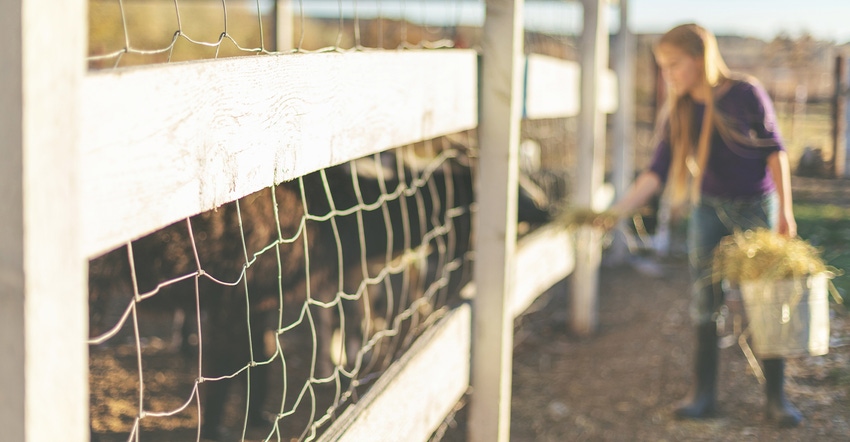February 7, 2020

It woke me out of a dead sleep, the garage door opening at 5:30 a.m. No one goes out that early, I thought. I rolled over and went back to sleep. I was wrong.
I was visiting my daughter in Ohio. She typically heads to work by 7 a.m. When I finally made it downstairs, my son-in-law greeted me.
“Did Elisa leave early?” I asked. “Yeah, someone called off work, so she went in to cover for her,” he responded. And then he opened the back door and headed to Columbus for a meeting.
Just the night before, all three of us were talking — OK, I was doing most of it — about how they work a lot of hours and don’t seem to enjoy their time off, let alone take any. “There is such a thing as work-life balance,” I said. “You all need to find it.”
Alone that morning, I thought, “Why didn’t they listen?” I think it boils down to their upbringing.
Different view of work
As my son-in-law says, those raised rural learn “to play hurt.” It doesn’t matter if the cold, winter wind is biting your face — you feed. It doesn’t matter if you have mono — you enter the show ring (true story of my girl). And it doesn’t matter if you have a broken ankle — you find a boot and get in the tractor.
Now as adults, they use the same mentality at their jobs. It doesn’t matter if it is snowing — you make a sales call. It doesn’t matter if it’s not your start time — you go in early. It doesn’t matter if you don’t feel well — you do your job.
But for the most part, the “real world" does not work that way. My concern is we teach solid work ethic to our children, then they engage in a world where others, well, are not raised with the same values.
People call off “sick” for the day, only to post to Instagram about an evening spent in a restaurant with margaritas. A few snowflakes fly, and it’s a personal day for “safety reasons.” Having a foot in a cast requires management to reserve them a spot nearest the office door. There just seems to be less commitment to work.
In an Inc. article titled "This Is Why Millennials Care so Much About Work-Life Balance," the author shared that, “For many millennials, success is having control over how and when they work and accumulating various life experiences.”
The article stated that 16.8% look for a job that offers good work-life balance, 11% for flexibility and only 13% for upward mobility. He ends with, “To effectively engage and retain millennials, create more work-life harmony.”
Fostering stability
So, are we in agriculture putting too much emphasis on work? Will we lose millennial farmers because we had too narrow of a focus?
Don’t get me wrong, work is good. Work is necessary. Work is a commitment. But life outside of work should happen. Life off the farm should happen.
We do not get a pass for “working together” as a way to promote “family time.” No, there needs to be more. If we are to retain that next generation of farmers, we need to start early and change our tactics.
So, for every fair your kids fit their animals for a livestock show, include time for carnival rides. After a long Saturday of doing chores, load up the truck and head to town for ice cream. Take time to attend a community festival together. Volunteer as a family at a charity or your church. We need to show them balance.
Later that evening, after my daughter went to bed, my son-in-law was once again headed out, this time for an overnight trip to Pennsylvania. I sat at the kitchen counter typing away on my laptop. He gently leaned down and tapped the counter. I looked up.
“Hey,” he said. “Do we need to talk about that work-life balance thing?” Busted.
No matter how old our kids get, they are still listening and watching. Apparently, I need to do better at modeling my own mantra.
You May Also Like




